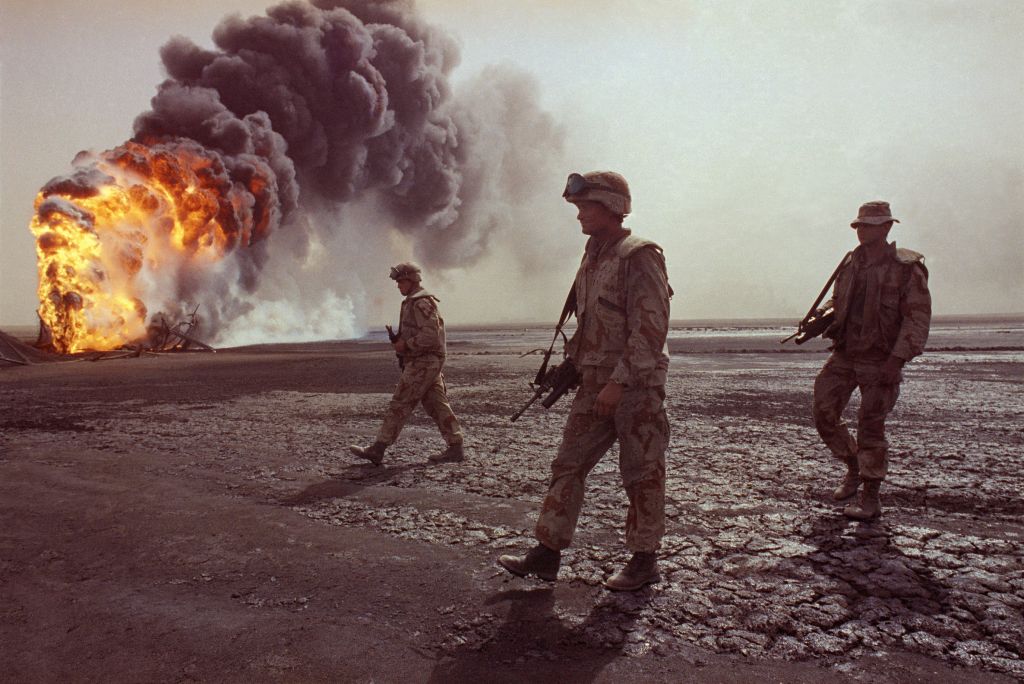Introduction:
The Persian Gulf War, also known as Operation Desert Storm, was an important chapter in modern military history. The conflict, sparked by Iraq’s invasion of Kuwait, prompted a US-led international coalition to move quickly to restore Kuwait’s sovereignty and address broader regional security concerns.

Duration:
This war took place in two phases from U.S’s point of view.
- Operation Desert Shield (2nd August 1990 to 17th January 1991)
- Operation Desert Storm (17th January to 23 February 1991)
Belligerents:
This war was fought between the Iraqi Republic and a 42 country coalition led by the United States of America. The key players in the American Coalition included France, Great Britain, Saudi Arabia, Egypt, Kuwait and many minor countries.
Outline:
In August 1990, Iraqi forces led by Saddam Hussein shocked the world by invading Kuwait. The United Nations quickly condemned the invasion and called for Iraq’s withdrawal. As diplomatic efforts stalled, a coalition of nations supporting the UN resolution launched Operation Desert Storm in January 1991.
The war was characterized by brutal airstrikes using advanced technology to weaken Iraq’s military capabilities. Iraqi forces were later driven out of Kuwait by a ground offensive, demonstrating the effectiveness of multinational cooperation.
Result:
A decisive Coalition victory.

A swift and decisive Allied victory ended Iraq’s occupation of Kuwait. Operation Desert Storm demonstrated the potential of modern military capabilities and demonstrated the importance of international cooperation in resolving regional conflicts. The United Nations played a key role in authorizing the use of force to enforce the resolutions.
Aftermath and Conclusion:
The consequences of the Gulf War were very serious. The goal of liberating Kuwait was achieved, but Saddam Hussein maintained his power in Iraq. The conflict devastated the country, destroyed its infrastructure and left people struggling with the effects of war.
The impact of the war extended beyond Iraq, influencing regional dynamics and shaping US foreign policy. The imposition of a no-fly zone and ongoing tensions in the region have highlighted the complexity of post-war Gulf geopolitics. In addition, the presence of coalition forces in the area has also caused controversy.

In short, the Gulf War of 1991 was a turning point in the world situation. Its strategic and diplomatic lessons continue to influence subsequent conflicts and international relations in the Middle East.
If you wish to know more about this war, check out this link.
https://en.wikipedia.org/wiki/Gulf_War
To know about other wars, https://warsandweapons.com/world-famous-wars/
Disclaimer:
This article does not present the author’s views but was purely written keeping in mind the historical events that took place. AI has been used to aid the content writing process and in the cross-checking of facts and information. The author has done his best not to include any false information. Any misinformation is deeply regretted and we urge you to point them out using the comment section.

